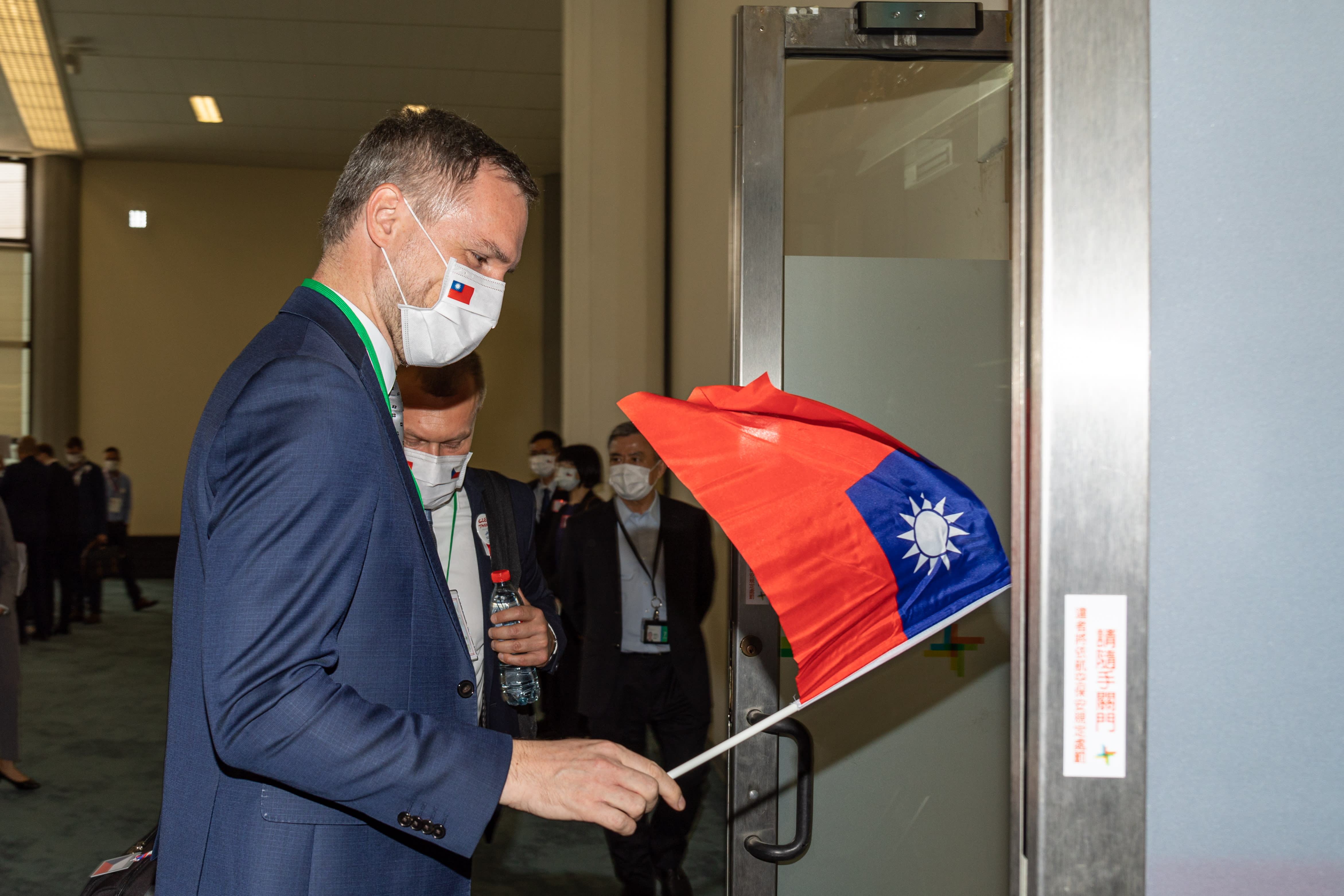
Taiwan’s President Tsai Ing-wen (R) gestures to US Secretary of Health and Human Services Alex Azar during his visit to the Presidential Office in Taipei on August 10, 2020.
Pei Chen | AFP | Getty Images
Taiwan has been building closer relationships with the U.S. recently, raising the ire of China.
The development comes as Taipei distances itself from China ahead of the U.S. presidential election and as China steps up military activity around the island.
On Aug. 31, State Department Assistant Secretary David Stilwell said Washington and Taipei will establish a new bilateral economic dialogue that will focus on technology but will also cover health care and energy. After the announcement, Taiwanese President Tsai Ing-wen said that bilateral relations “are getting stronger by the day.”
Just days earlier, Taiwan announced that it would ease restrictions on American beef and pork imports, paving the way for an eventual free trade deal with the U.S.
Last month, Health and Human Services Secretary Alex Azar visited Taiwan, becoming the highest-level U.S. official to visit in four decades.
The developments between Taipei and Washington come as the rivalry between the U.S. and China grows more tense.
“Washington is embroiled in an increasingly ferocious great-power competition with Beijing, raising concerns that the United States may actually be strengthening ties with Taiwan primarily to frustrate and thwart China,” Derek Grossman, senior defense analyst at Rand Corp, wrote last month.
The moves drew protests from China, which considers Taiwan as part of its territory that must one day be reunified with the mainland and therefore should have no right to participate in international diplomacy. During Azar’s visit, Chinese fighter jets crossed the midline of the Taiwan Strait.
“Beijing is increasingly concerned about US-Taiwan cooperation, including a call by some Taiwan watchers in the US that Washington should end its policy of strategic ambiguity and pledge concrete support for Taiwan against Chinese aggression,” Eurasia analysts Kelsey Broderick and Michael Hirson said in a note on Monday.
Washington has no formal diplomatic tie with Taipei but is Taiwan’s most powerful international backer and largest arms supplier.
U.S. cautious on Taiwan tilt
Despite closer relations between the U.S. and Taiwan, Washington is likely to be cautious in its next moves.
The Eurasia analysts noted that Stilwell did not announce that the U.S. will restart negotiations on a bilateral trade pact with Taiwan.
“The US is not likely to begin talks before the election but could still announce them if President Donald Trump wins a second term,” they added.
In the meantime, Taiwan has also sought to distance itself from China, introducing a new passport design that seeks to emphasize the word “Taiwan” on its cover, doing away with its formal name “Republic of China” in English. Taiwan’s legislature also approved a proposal to rename carrier China Airlines.
But for now, Washington is likely to remain careful in its stance on Taiwan, analysts said.
“If the US were to announce a formal position on Taiwan’s sovereignty in favor of Taipei, it would likely cross a red line, triggering a forceful military response from China,” said the Eurasia analysts.
Chinese President Xi Jinping has said that Taiwan is the most important and sensitive issue in U.S.-China ties.
“If the United States were to make increasingly provocative moves, such as one day sending the secretary of state or defense chief, forging a formal military alliance with Taiwan, or even unilaterally recognizing Taiwan as an independent nation, then this could lead to armed conflict between the United States and China over Taiwan—certainly an undesirable outcome for Taipei,” added Rand Corp’s Grossman.
Source: CNBC
